People travel to the Ayrshire coast for lots of different reasons and using many different forms of transport.
Key points
In this article you can find out about:
- going 'doon the watter'
- different types of transport
- what import and export are
This resource is suitable for People, Place and Environment topics for P5, P6 and P7 (Second Level Curriculum for Excellence).
Watch
Join Isla and Connor as they travel between Glasgow and Stranraer.
ISLA: Glasgow Central!
Scotland's busiest railway station and the starting point for the Glaswegian tradition of going 'doon the watter', holidaying along the Ayrshire coast, something people have been doing for generations.
CONNOR: We'd better get a move on and grab some seats on the train to Prestwick, our first stop on the way to Stranraer.
Can't wait to try out these new binoculars in Prestwick for a bit of porpoise spotting.
ISLA: I love how you can hop on a train and be somewhere totally different at the other end and only takes an hour.
We're crossing the River Clyde and then following it west, before cutting across country to the Ayrshire coast and heading south to Prestwick, from there we can go on down the coast to Stranraer.
CONNOR: Ah for more binocular action!
Birdwatching on Loch Ryan.
ISLA: In the past, not many people could travel abroad easily, and that's why going 'doon the watter' became so popular, taking a holiday away from the city.
Today, more people can go abroad for holidays.
Flying is cheaper and easier than it used to be, but people still like to come to the coast for day trips, like us!
CONNOR: And railways and modern roads make it easier for people to live here at the coast and commute to work in Glasgow.
ISLA: That's Prestwick International Airport.
All sorts of aircraft take off from there from small planes to large passenger flights taking people to other countries and big cargo aircraft carrying goods in and out of the country.
Goods are items that are bought and sold.
When they're sold to other countries, that's called export.
Scotland famously exports textiles, seafood and whiskey.
Sometimes we buy goods from other countries, that's import.
CONNOR: Like oranges from Spain.
Our first stop.
Let's see what wildlife we can find.
ISLA: And the beach is right there!
Come on.
No wonder the Ayrshire coast is so popular.
What a great view from this beach, along the coast and across to Arran.
Ayrshire has plenty of other attractions, walking and cycling routes, historical buildings, beaches, and of course, golf.
CONNOR: Oh! Spectacular!
Harbour porpoises!
Oh whoa…
That's a bit bigger than the birds I usually like to spot.
ISLA: Shall we carry on with our journey too, Connor, back on the train to Stranraer?
CONNOR: Let's do it!
ISLA: Stranraer Harbour on the shores of Loch Ryan.
The best place to see…
CONNOR: The UK's rarest species of duck, the scaup.
I'm just a wee bit excited.
Thanks for coming all this way to see them.
Mm, ah, a bit quiet out there.
ISLA: It is now.
It would have been really busy not too long ago.
Loch Ryan has been used as a port for a long time because it provides sheltered waters with easy access to the Irish Sea.
You used to be able to catch ferries here to Northern Ireland, but the large, modern high speed ferries were too big for the shallow water.
Now the ferries go from further up the loch, where the water is deeper in Cairnryan.
CONNOR: So the sea here is used for travel and trade and the coast is a great place to visit or to live, for people and for wildlife.
Look!
There are grebes and divers and oh there it is!
A scaup!
ISLA: Of all the reasons to travel to and from here, Connor, I like the rare ducks the best.
Holidays on the Ayrshire coast
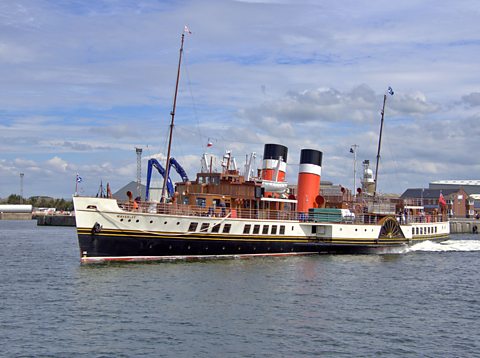
In Victorian times, many people in Glasgow would travel to seaside towns on the Firth of Clyde and Ayrshire Coast for holidays.
One popular way to travel there was by boat. Taking trips like this was called going doon the watter (down the water).
Beginning in 1812, paddle steamerA ship or boat powered by a steam engine. The steam turns a paddle wheel which pushes the boat through the water. services would sail down the River Clyde to towns like Dunoon, Rothesay, Millport and Largs. The paddle steamer Waverley still carries tourists and travellers on cruises down the Clyde and around other parts of the UK…
When railways were built in the 1830s, 40s and 50s, people were also able to travel to the coast by train. Trains made travelling to the beaches of Troon, Ayr or Girvan quicker and cheaper.
When people began to own cars and there were better roads, travelling from the cities to the seaside became very quick and easy. Now many people will travel to the coast for day trips rather than for long holidays.

Holidays abroad
Most Scots spent their holidays in Scotland or elsewhere in the UK until the 1970s, when cheap air travel and package holidayA holiday for which travel and accommodation are organised and paid for together as one 'package'. made a summer holiday in countries like Spain, Portugal or Greece more affordable.
Many people like to travel abroadIn another country where the weather is hot and sunny more often, or where they can visit new places.
Some people holiday in Scotland or the UK because it can be less expensive or because they want to explore their own country. Choosing not to fly off on holiday can also be an environmental choice - aeroplanes produce large amounts of carbon dioxide which is one of the causes of climate change.
In Scotland most passenger flights are from the big city airports of Edinburgh, Glasgow and Aberdeen.Prestwick Airport deals with fewer passengers but is a busy cargo airport.
Different forms of transport
These days not many people travel by boat doon the watter. Today, most people use road or rail to travel to or along the coast. There are also cycle paths to take cyclists most of the way between the Ayrshire coast and Glasgow.
All of these forms of transport have benefits and issues. Can you think what these might be? Click the tabs below to find out.
Bike
Advantages
- Travel by bike doesn't produce any carbon emissions
- You can go anywhere there are roads
- You can travel by bike whenever you want
- Cycling is a good form of exercise as well as transport
Disadvantages
- Cycling is usually a slower form of travel
- It can be tiring
- You can't carry as many belongings
- Bad weather can make cycling unpleasant
Bus or coach
Advantages
- Buses can carry many people so they produce less carbon emissions per person
- Buses take up less room on the road than cars and can help cut down traffic congestion
- At busy times, bus lanes can make travel quicker than by car
- Passengers can relax or work because they don't have to concentrate on driving
Disadvantages
- Buses only travel along certain routes and stop at certain places
- Buses travel to a timetable, so you can only travel by bus at certain times
- You might have to take more than one bus to get to where you want to go
- Buses with few passengers don't use energy efficiently
Car
Advantages
- Cars let you travel wherever there are roads
- You can travel by car whenever you want
- Cars are sometimes quicker than other transport
- Cars can carry more luggage, bags or shopping than a person could take on public transport
Disadvantages
- Cars can be expensive to buy and run
- Most cars produce more carbon emissions per person than buses or trains
- Lots of cars travelling around can cause traffic congestion and make journeys slow
- Parking can be difficult or expensive in some places
Train
Advantages
- Train can carry many people so they produce fewer carbon emissions per person
- Trains can be quicker than travelling by road
- Passengers can relax or work because they don't have to concentrate on driving
- You can get up and move around on long journeys
Disadvantages
- Unless you are near a station, you might need other transport to get to and from your train
- Trains travel to a timetable, so you can only travel by train at certain times
- You might have to take more than one train to get to where you want to go
- Some tickets for longer journeys can be expensive
Why do people travel to the coast?
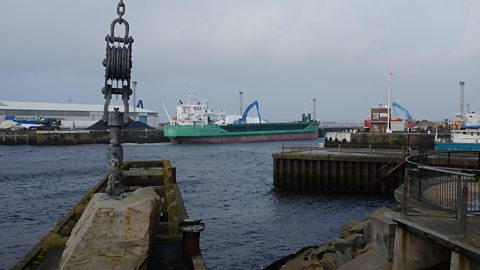
Image caption, Business
The town of Ayr has been a centre for trade and business since the 13th Century. It was once home to the biggest port in Scotland. Wool, fish and crops like potatoes were exported from Ayr. Wine and salt were imported. (Derek Copland / Alamy Stock Photo)
Image caption, Trips to the beach
Spending a day at the beach is still popular at weekends, in summer and when there is a holiday. This photo shows people paddling in the water at Troon. (Findlay / Alamy Stock Photo)
Image caption, Golf
Visitors come from all over the world to play golf at Ayrshire's many courses. Prestwick Golf Club hosted the first ever Open Championship in 1860. Nowadays major golf competitions held in Scotland can attract large crowds of sports fans. (Alister Firth / Alamy Stock Photo)
Image caption, Onward travel
The port of Cairnryan is where ferries to Belfast sail from. This is an important transport link for people, and also for lorries carrying goods between Scotland and Northern Ireland. (Findlay / Alamy Stock Photo)
Image caption, International transport
Prestwick Airport is Scotland's fifth busiest airport for passengers with flights to and from Spain, Portugal, France and Italy. It is the second busiest Scottish airport for cargo, transporting goods to and from the USA, France and Luxembourg.(Findlay / Alamy Stock Photo)
Image caption, To live
Lots of people live and work in Ayrshire. Many others commute from their homes here to jobs in Glasgow or other parts of the central belt. This can make trains, buses and the M77 motorway very busy with rush hour traffic. (Aerial Pixls (Scotland) Ltd / Alamy Stock Photo)
1 of 6
Transporting goods
Transport isn't just for people. Every day our roads, railways, ports and airports are busy moving freightGoods which are transported by lorries, trains, ships or planes. around the country.
Think about all the stuff you use every day - food, clothes, furniture, books, electronic equipment, toiletries, and many other things. All of them have been transported from where they were grown or made, to shops or warehouses, to your house or school.
Some of these journeys will be short, local journeys. Other goods are transported for thousands of miles around the world. When goods are transported into or out of the country, we call it import and export.
Importing and exporting
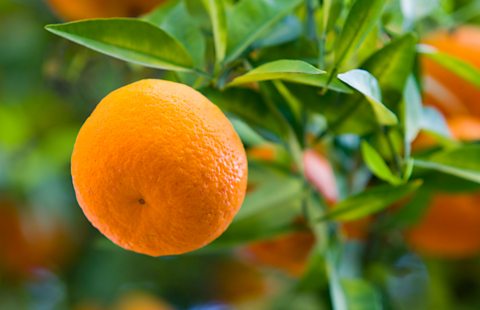 Image source, Purepix / Alamy Stock Photo
Image source, Purepix / Alamy Stock PhotoImporting is when someone brings goods or services into the country.
For example, Scotland imports oranges from Spain.
 Image source, Purepix / Alamy Stock Photo
Image source, Purepix / Alamy Stock Photo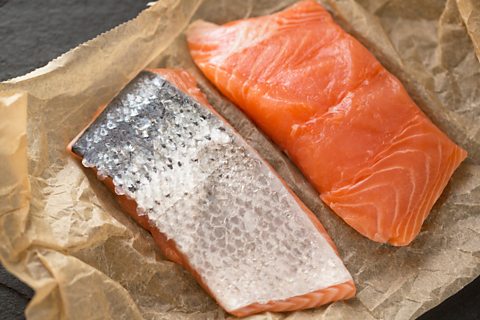 Image source, www.pqpictures.co.uk / Alamy Stock Photo
Image source, www.pqpictures.co.uk / Alamy Stock PhotoExporting is when goods or services are sent out of the country to other countries.
For example, fish, shellfish and other seafood are exported from Scotland to Europe, North America, China and Japan.
 Image source, www.pqpictures.co.uk / Alamy Stock Photo
Image source, www.pqpictures.co.uk / Alamy Stock PhotoHow are goods imported and exported?
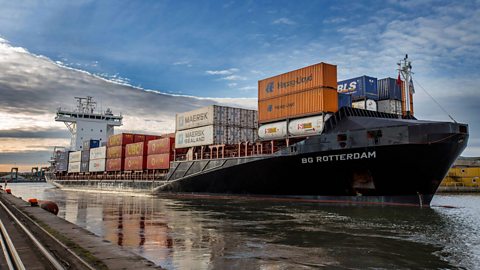
Goods are imported and exported through Scotland's ports and airports.
The Port of Grangemouth is Scotland's main freight hub. As of 2023, more than nine million tonneOne thousand kilograms. of cargo pass through the port each year. Cargo ships are used to transport large amounts of goods at low costs, but journeys can be slow. Grangemouth handles food and drink, fuels, and steel and timber products.
Edinburgh Airport is Scotland's largest cargo airport. Planes are often used to transport goods that are needed somewhere in a hurry, or need to be fresh. Air freight is faster than shipping but it is more expensive and produces more carbon emissions. Scotland's airports handle goods including fish and seafood, and some medicines.

Impact on the environment
Importing and exporting has a big impact on the environment.
Transporting goods over long distances can produce lots of carbon dioxide. Buying products that are grown or made locally can be one way to reduce the amount of greenhouse gases produced.
Key words
Sorry, something went wrongCheck your connection, refresh the page and try again. - Goods which are transported by lorries, trains, ships or planes.
Sorry, something went wrongCheck your connection, refresh the page and try again. - Taking a trip or holiday from Glasgow down the River Clyde or along the Ayrshire coast.
Sorry, something went wrongCheck your connection, refresh the page and try again. - A ship or boat powered by a steam engine. The steam turns a paddle wheel which pushes the boat through the water.
Sorry, something went wrongCheck your connection, refresh the page and try again. - Bringing goods or services into the country.
Sorry, something went wrongCheck your connection, refresh the page and try again. - Sending goods or services out of the country.
Sorry, something went wrongCheck your connection, refresh the page and try again. - A town or city with a harbour or access to water where ships load or unload.
Sorry, something went wrongCheck your connection, refresh the page and try again. - The release of carbon into the earth’s atmosphere, which contributes to climate change.
Sorry, something went wrongCheck your connection, refresh the page and try again. - The change in the usual conditions of weather (temperature, wind, rainfall etc.) on Earth over a long period of time. The climate has changed throughout the history of Earth, but current climate change refers to an increase in global temperature.
Sorry, something went wrongCheck your connection, refresh the page and try again. - One thousand kilograms.
Test your knowledge
More on Landscapes
Find out more by working through a topic
- count9 of 25
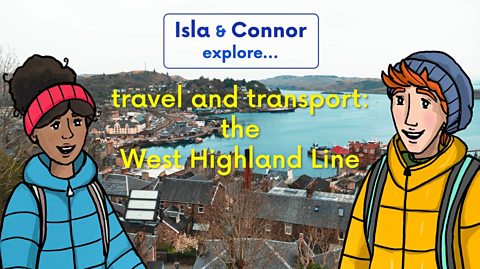
- count10 of 25
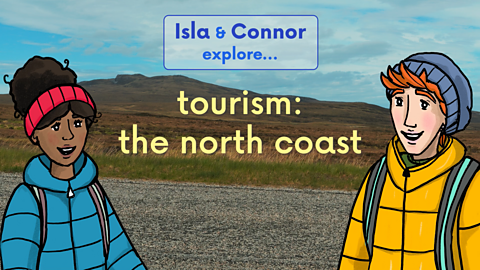
- count11 of 25
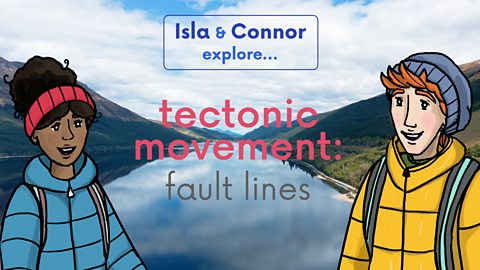
- count12 of 25
